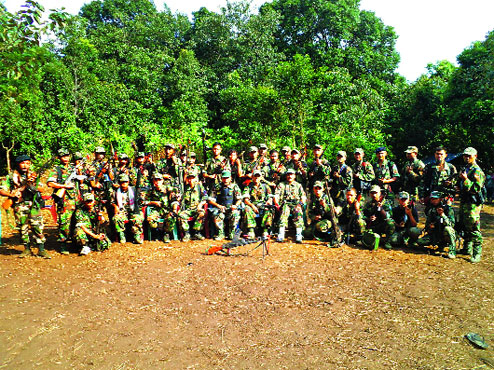
Guwahati, June 19: The department of clinical haematology of Gauhati Medical College and Hospital will, for the first time, perform corrective surgery on haemophilia patients suffering from physical disabilities within a month.
The Guwahati chapter of the Haemophilia Society has provided the department with a million units of factor, a clotting protein administered to haemophilia patients.
"To start with, we will perform corrective surgeries on two haemophilia patients in a month as the clotting protein (factor VIII and factor IX) has been made available by the Haemophilia Society. The department of orthopaedics, GMCH, will assist us in the surgeries on joint disorders," Jina Bhattacharyya, professor and the head of the department of clinical haematology at GMCH, told The Telegraph here today.
Haemophilia is a genetic bleeding (internal or external) disorder which cannot be permanently cured.
The most common parts of the body affected by bleeding are joints and muscles. Prolonged bleeding in the joints and muscles can permanently damage them leading to disability.
"Surgery on haemophilia patients involves a complex procedure as we have to take care to prevent excessive bleeding while the scalpel is at work. In the long run, we will request the state government to arrange for supply of the protein on a regular basis so that the disorder is managed and further damage prevented," Bhattacharyya said.
Assam has over 1,000 haemophilia patients registered with the GMCH. Unofficial reports say there are a few thousands affected by the disorder in the state.
Patients are under-treated or are not treated at all, either because of the high cost of anti-haemophilic factor treatment coupled with lack of awareness.
Mukesh Garodia, secretary of Guwahati chapter of the Society, said the World Federation of Hemophilia, the parent body of the Hemophilia Federation (India) of which the Society is a member, has provided a million units of the clotting protein.
The federation is a non-profit organisation dedicated to improving the lives of people with haemophilia and other genetic bleeding disorders.
"We have requested the federation to provide the factor on a regular basis. The clotting protein is manufactured by pharmaceutical companies overseas and is expensive. A dose (administered in the veins through an injection) comprises 250 units of factor that costs between Rs 2,500 and Rs 3,500. The dosage depends on the weight of the patient."
The Haemophilia Society today awarded scholarships to 31 students from across the state affected by the disorder. "Save One Life, a US-based NGO has funded the scholarship. We have supported over 50 students with the disorder so far. They are registered with us. The target in the coming phases is to help 200 such students with monetary aid," Garodia said.
Sources said the disease can also be prevented if diagnosed during the antenatal (before birth) stage. Rathindra Nath Bhuyan, director of Health Services, Assam, said, "We will ask Dispur to set up a haemophilia clinic in each of the six medical colleges in the state so that the treatment, including physiotherapy, is focused and effective."
Tezpur MP R.P. Sharma, who attended the function today, said he would take up the health directorate's concerns with chief minister Sarbananda Sonowal next week.











